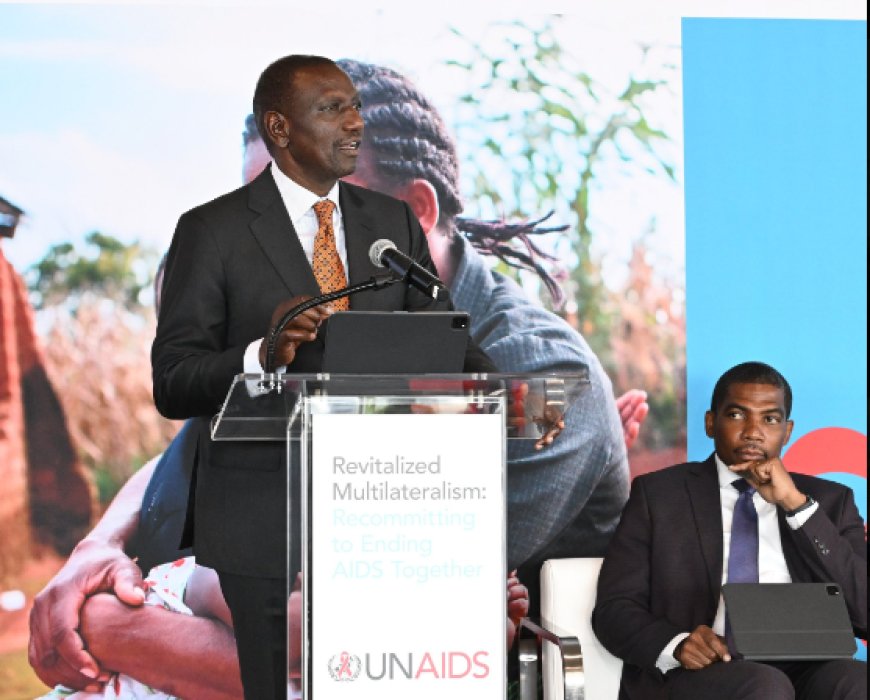Majority of New HIV Infections in Kenya Affect Those Under 34 According to President Ruto
At a UNAIDS conference in New York, President William Ruto revealed that most new HIV infections in Kenya affect those under 34. While Kenya has met the global 95-95-95 targets, Ruto stressed the need for urgent support for vulnerable groups like women, girls, and adolescents. He also highlighted social and economic drivers of new infections, such as poverty and healthcare inequities, and introduced Kenya's Financing Transition Roadmap to ensure a sustainable HIV response.

New HIV infections in Kenya mostly happen in folks under 34 years old. President William Ruto shared this during a UNAIDS in New York on Tuesday.
He quickly mentioned that Kenya is getting really close to controlling the epidemic. Excitingly, the country has met the 95-95-95 global targets! This means that 95 percent of people know their HIV status, which is fantastic news.
The President also said they have achieved something even bigger: 100 percent of people diagnosed are on treatment. Plus, a whopping 97 percent of those receiving treatment are achieving viral suppression. That's amazing!
Related:
He pointed out that, since 2013, AIDS-related deaths have dropped by 65 percent! However, the incidence rate still sits at 0.39 per 1,000 people in 2023.
“The epidemic still affects vulnerable groups more than others,” he stated. This includes women, girls, adolescents, and key populations facing challenges like healthcare inequities, stigma, and discrimination.
Ruto expressed that this situation shows how urgent it is to boost multilateral efforts to help these groups.
He identified women, girls, and adolescents as the most at-risk populations.
“We’re at a really important moment where our usual strategies just aren’t enough if we want to end AIDS by 2030,” he said. “In the past, we focused mainly on healthcare but often forgot about other reasons for infection—things like social and economic gaps, poverty, low education levels, and environmental issues.”
Ruto explained that Kenya depends on both bilateral and multilateral aid to cover its annual HIV budget of Sh25.4 billion.
“So, to move forward, Kenya is rolling out a Financing Transition Roadmap.” This plan centers around governance & stewardship, getting domestic resources together, making programs more efficient, and merging different healthcare sectors. The roadmap aims to link HIV strategies with national health & economic plans while also boosting accountability.
Also Read:
What's Your Reaction?














































































































